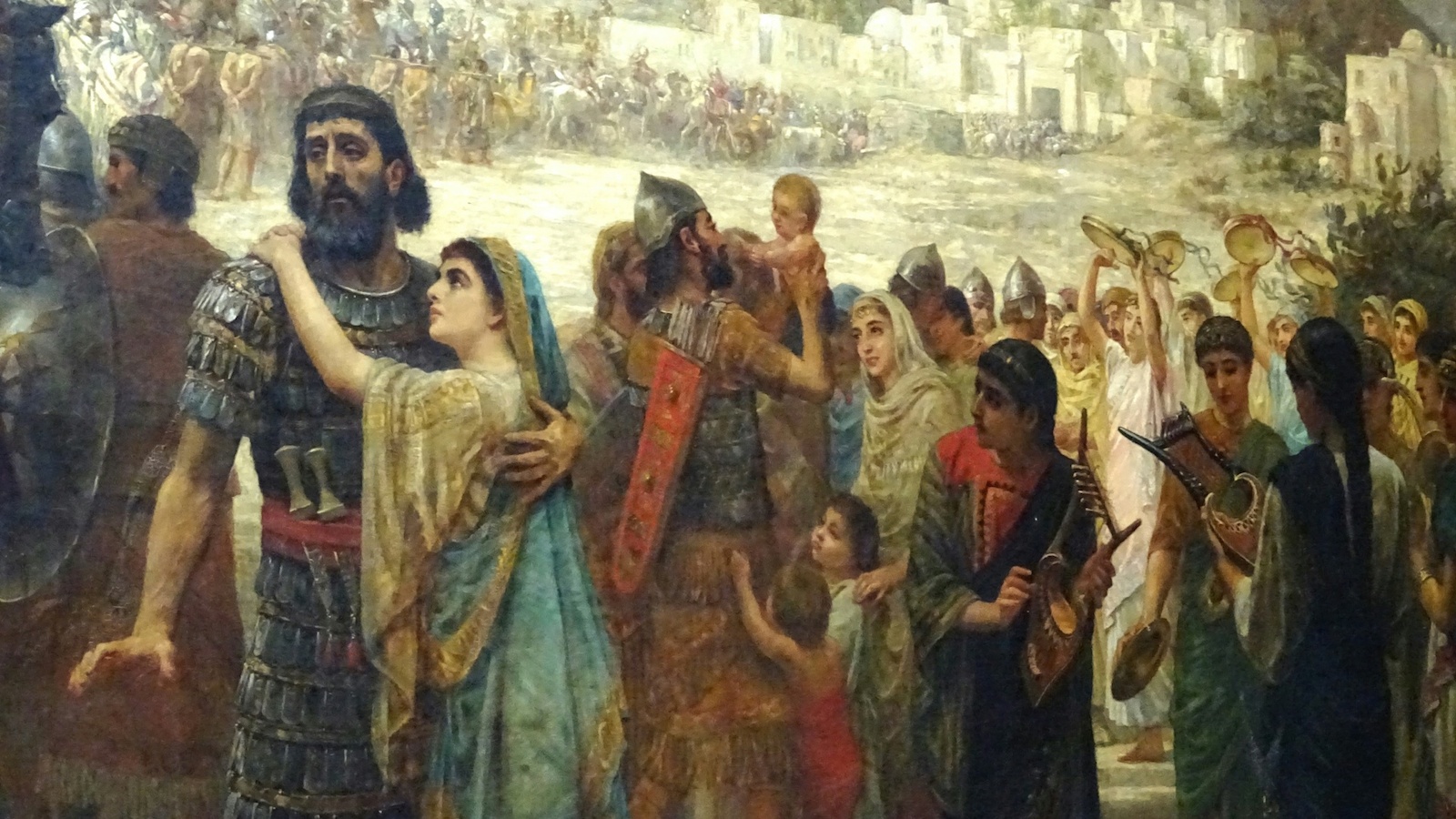Jephthah, a man who became renowned for his bravery, was the son of a harlot and a man named Gilead–which was also the name of the region where he lived. His half-brothers, sons of their father’s legitimate wife, fearful that Jephthah would share in their inheritance, expelled him from the family home when he grew up. Jephthah fled to the land of Tob, where he surrounded himself with a band of men of low character.
The Israelites felt threatened by the Ammonites. The elders of Gilead went to the land of Tob and asked Jephthah to lead their army against the Ammonites. Jephthah asked them, “You are the very people who rejected me and drove me out of my father’s house. How can you come to me now when you are in trouble?”
“Honestly, we have now turned back to you. If you come with us and fight the Ammonites, you shall be our commander over all the inhabitants of Gilead,” said the elders (Judges 11:7–8).
Jephthah accepted the offer, returned with the elders to the region of Gilead, and assumed the command of the army in Mizpeh. He first tried to solve the crisis peacefully, by diplomatic means. He sent messengers to the Ammonite king, asking him why he was attacking them. The king replied that Israel was occupying his land and demanded that it be returned to him.

Help us keep Jewish knowledge accessible to millions of people around the world.
Your donation to My Jewish Learning fuels endless journeys of Jewish discovery. With your help, My Jewish Learning can continue to provide nonstop opportunities for learning, connection and growth.
Jephthah sent his messengers back to Ammon to explain that when the Israelites came out of Egypt they had not taken any land from Moab or Ammon. They had not even entered the territory of Moab. Instead, they had fought against Sihon, king of the Amorites, defeated him, and had taken possession of his territory.
Furthermore, for about 300 years, the Israelites had inhabited the land and not once during that entire time had the Ammonites tried to recover it. Therefore, Jephthah could not see any justification for Ammon’s demands.
The king of Ammon rejected the arguments and continued his aggression. Seeing that the crisis could not be solved by peaceful means, Jephthah marched with his army toward the Ammonites.
Before engaging in battle, Jephthah made a vow to God, saying, “If you deliver the Ammonites into my hands, then whatever comes out of the door of my house to meet me on my safe return from the Ammonites shall be the Lord’s and shall be offered by me as a burnt offering (Judges 11:30–31).”
The Ammonites were routed, and Jephthah returned victorious to his house in Mizpeh. His daughter, an only child, came out of the house to welcome him with timbrels and dances. Jephthah, horrified, rented his clothes and cried that he could not take back his vow.
The daughter accepted her fate with resignation; but she asked that she should be given two months to go to the hills with her companions and lament her virginity. Jephthah carried out the vow when she returned.
The tribe of Ephraim complained to Jephthah that he had not asked them to help him against the Ammonites, and they threatened to burn down his house. Jephthah replied that he had summoned them, but they had not reacted. Jephthah gathered an army of Gileadites and defeated the Ephraimites.
The Ephraimites tried to escape by crossing the river. The Gileadites, who controlled the approaches to the Jordan River, asked each one of the survivors if he was an Ephraimite.
If the man denied it, he was asked to say the word Shibboleth, a word that the Ephraimites pronounced as “Sibboleth.” If the man didn’t pronounce the word correctly, the Gileadites killed him. Approximately 42,000 Ephraimites were thus massacred. Jephthah judged Israel for six years, until his death. He was buried in one of the cities of the region of Gilead.
The tragedy of Jephthah’s daughter is the origin of the Israeli custom of young girls in Israel expressing their sorrow for the girl for four days each year.
Reprinted with permission from Who’s Who in the Hebrew Bible (The Jewish Publication Society).
Moshe
Pronounced: moe-SHEH, Origin: Hebrew, Moses, whom God chooses to lead the Jews out of Egypt.

Help us keep Jewish knowledge accessible to millions of people around the world.
Your donation to My Jewish Learning fuels endless journeys of Jewish discovery. With your help, My Jewish Learning can continue to provide nonstop opportunities for learning, connection and growth.



